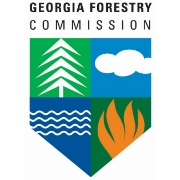About Georgia forestry commission
Georgia Forestry Commission: Protecting and Conserving Georgia's Forest Resources
The Georgia Forestry Commission is a state agency that provides leadership, service, and education to protect and conserve Georgia's forest resources. The commission was established in 1929 with the mission of protecting and conserving the state's forest resources for present and future generations.
The commission is responsible for managing over 24 million acres of forestland in Georgia. This includes providing technical assistance to private landowners, managing state-owned forests, conducting research on forestry issues, and educating the public about the importance of forests.
One of the primary functions of the Georgia Forestry Commission is to provide technical assistance to private landowners. The commission has a team of professional foresters who work with landowners to develop management plans that promote sustainable forestry practices. These plans help landowners maximize their timber production while also protecting wildlife habitat, water quality, and other important natural resources.
In addition to working with private landowners, the Georgia Forestry Commission manages over 1 million acres of state-owned forests. These forests are managed using sustainable forestry practices that ensure long-term productivity while also protecting biodiversity and other important ecological values.
The commission also conducts research on forestry issues such as tree genetics, silviculture (the science of growing trees), wildfire prevention and suppression techniques, insect pest management strategies, and more. This research helps inform policy decisions related to forestry management in Georgia.
Education is another key function of the Georgia Forestry Commission. The commission offers a variety of educational programs for students ranging from kindergarten through college. These programs teach students about the importance of forests as well as how they can be managed sustainably for future generations.
The commission also provides educational materials for adults such as brochures on wildfire prevention or information on how to plant trees properly. Additionally, they offer workshops for professionals such as loggers or arborists who need continuing education credits in order to maintain their certifications.
Overall, the mission of the Georgia Forestry Commission is critical not only for preserving one particular resource but also because it has far-reaching implications across many different areas including economic development opportunities through timber production; environmental protection by maintaining healthy ecosystems; social benefits like recreation opportunities provided by public lands; cultural significance tied up within our history surrounding these vast expanses we call home here in America!
